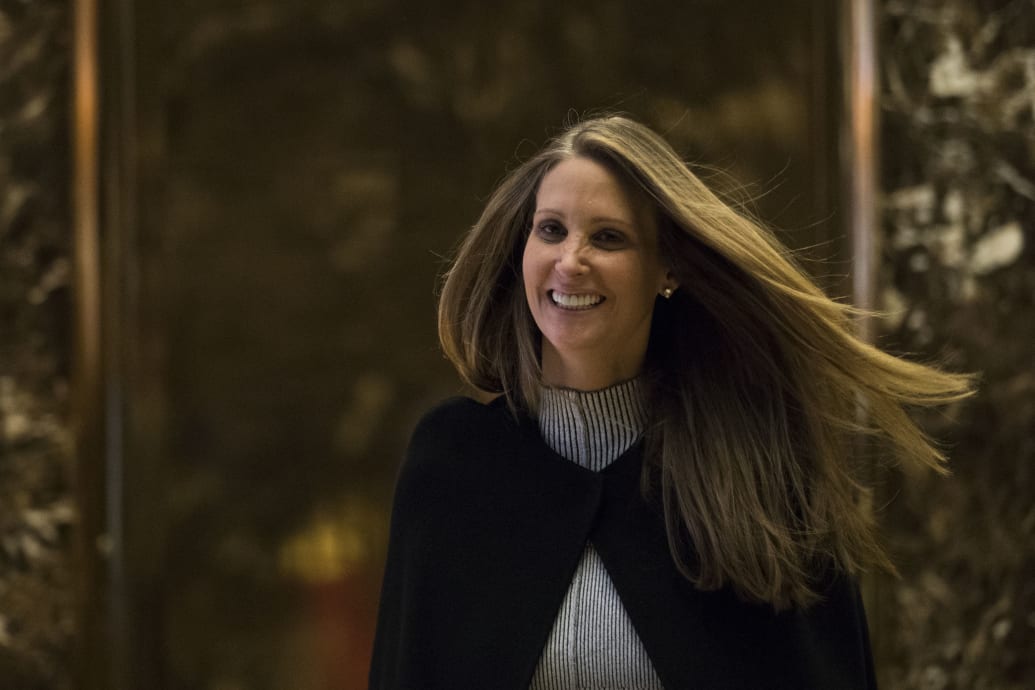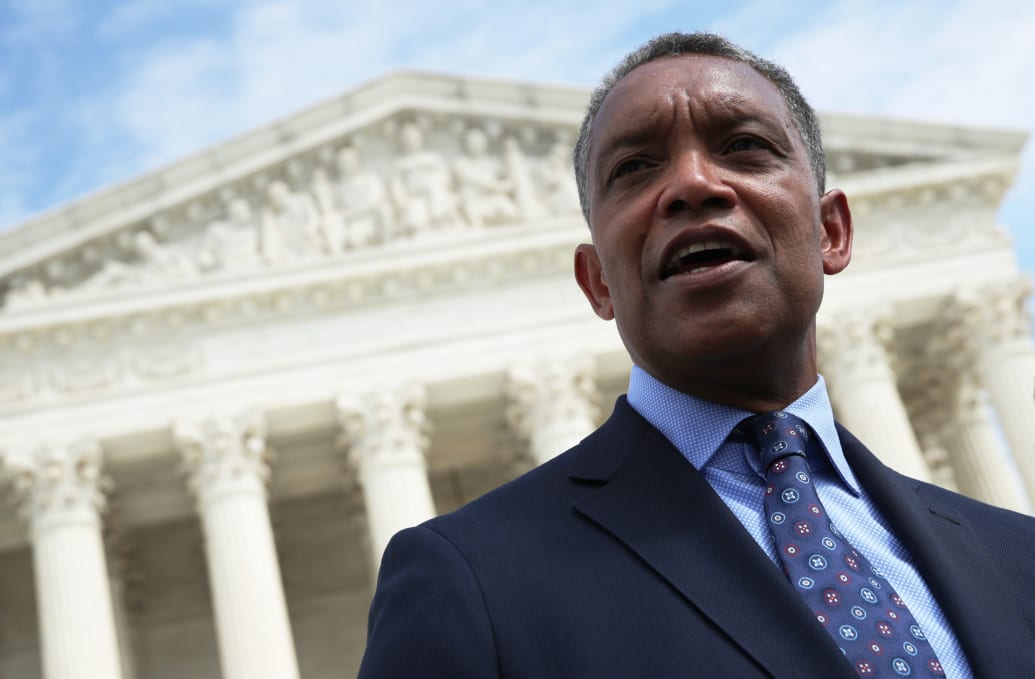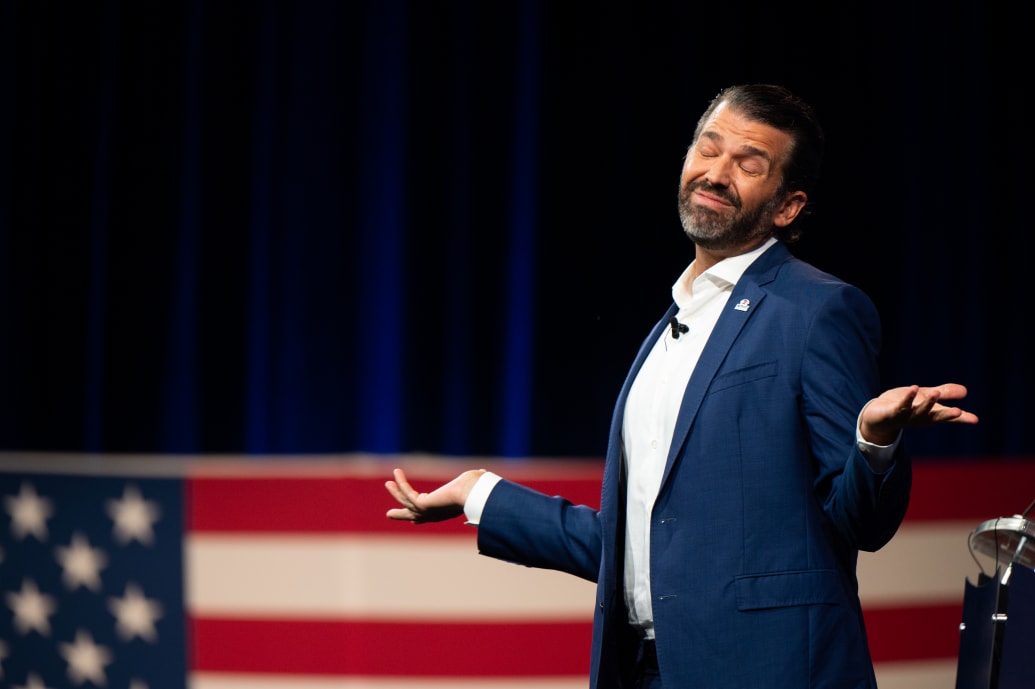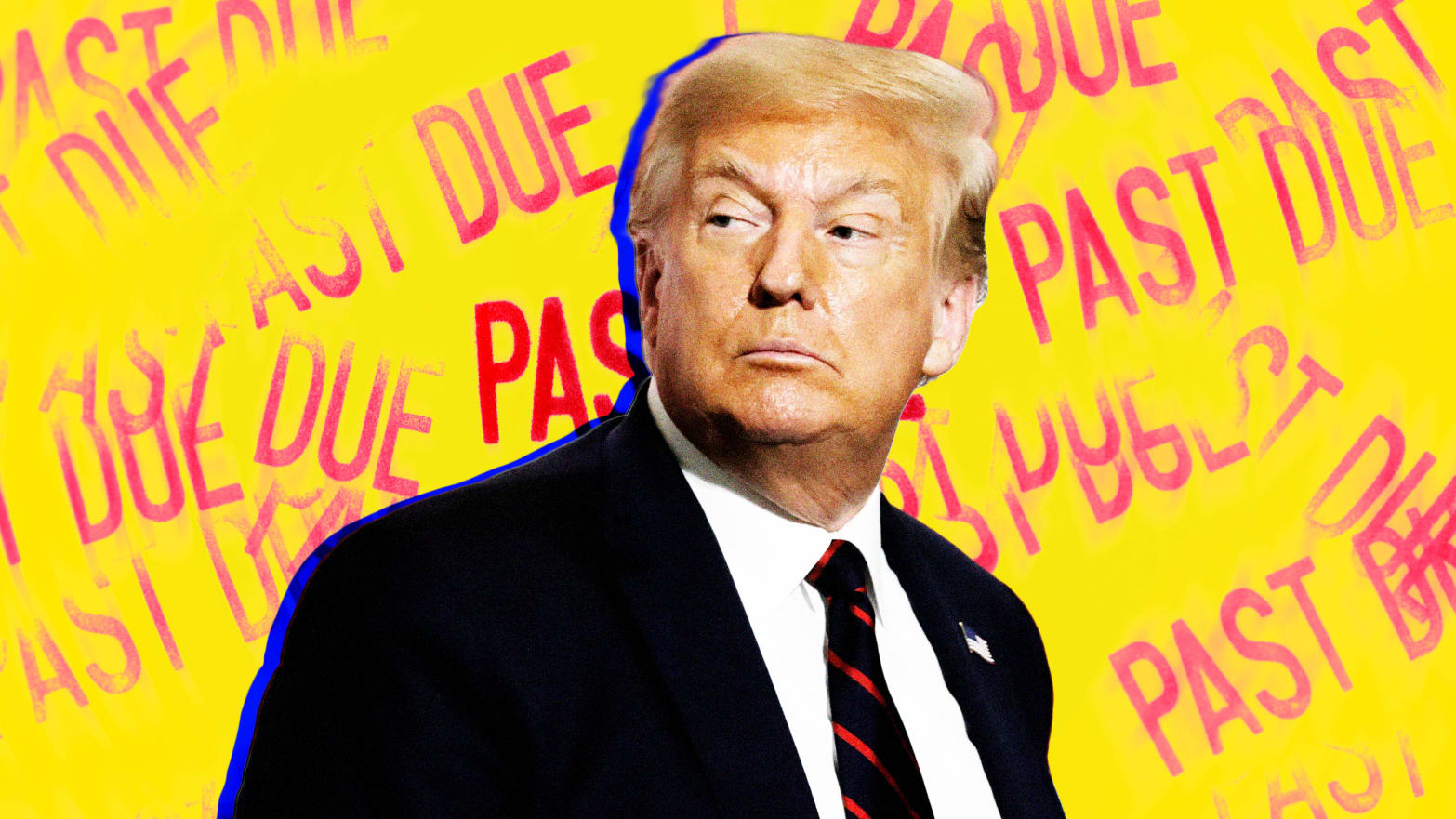Former President Donald Trump and his family company have a long history of stiffing contractors, but there’s one bill they almost certainly wish they had paid.
Ahead of the 2017 presidential inauguration, the Trump Organization reserved a block of rooms at the Loews Madison Hotel. When at least 13 people didn’t show up, the Trump Organization refused to pay the bill, something it has done many times in the past. The company then dodged a credit collection agency and eventually squirmed out of it by pushing the $49,358 bill off to the nonprofit presidential inaugural committee, the PIC.
That dodged payment is now the crux of the attorney general for the District of Columbia’s latest effort to put the Trump Organization back in its crosshairs in an ongoing investigation into how the Trump kids used the Presidential Inauguration Committee to throw lavish parties of their own.
“It was their friends. It should never have been sent to the PIC. That’s misuse of funding. The Trump Organization being involved in any way and getting the PIC to pay any sort of balance anywhere on their behalf? It just doesn’t seem legitimate,” said Stephanie Winston Wolkoff, who coordinated inaugural events and is now the government’s lead witness in this case.

Stephanie Winston Wolkoff
Drew Angerer/Getty
Winston Wolkoff is no friend of the Trumps—any more. Although she was close to the family for more than a decade and eventually became “Trusted Adviser” to First Lady Melania Trump, there was a fallout after Winston Wolkoff felt that the Trump White House made her the scapegoat for inauguration misspending. The New York Times identified a company associated with her, WIS Media Partners, as the recipient of a whopping $26 million, and Winston Wolkoff later overcame Justice Department resistance to publication of her tell-all book called Melania and Me.
D.C. Attorney General Karl Racine continues to investigate how the inauguration committee allegedly misspent more than $1 million and was allegedly used to essentially enrich Trump’s own company on his way into the White House. And the Attorney General’s office is trying to recover from a courtroom defeat late last year.
In November, D.C. Superior Court Judge José M. López seemed to doom the local attorney general’s investigation when he cut the Trump Organization loose from the lawsuit. His reasoning, which surprised those following the case, was that the family’s company wasn’t directly involved—even though Don Jr., Ivanka, and other staffers at the company’s New York office were on a lot of the paperwork. So he dropped the Trump Organization from the lawsuit.

Washington, D.C., Attorney General Karl Racine
Alex Wong/Getty
The judge’s Nov. 8 order hinged on the company’s claims that Texas financier Gentry Beach didn’t have the authority to list the Trump Organization when he pulled out an American Express credit card and made the large and expensive reservation. However, Beach was no stranger to the Trump Organization. He was Donald Trump Jr.’s college pal and was handpicked to serve on the nonprofit’s finance committee. He was also outed by journalists even before the inauguration for being part of a nonprofit—directed by Eric Trump, Don Jr. and another wealthy Texan—that seemed to be auctioning off access to the Trumps.
Since then, Racine’s office has filed documents in court seeking to reverse that, pointing to numerous receipts and memos that show how even the debt collector wouldn’t be duped into letting the Trump Organization weasel its way out of this one.
In the typical fashion of an aggressive collections agency, Campbell Hightower & Adams in Arizona started bombarding the company with phone calls and emails in June 2017, picking up where the Loews Madison Hotel had left off.
A collector, identified only as “Sherie,” jotted down notes when she repeatedly communicated with Don Jr.’s executive assistant, Kara Hanley.
“Unfortunately, this was not an agreement made by anyone at The Trump Organization. Best, Kara,” Hanley wrote on June 8.
“A contract was signed and then 13 people did not show up for the rooms you reserved [sic] so according to the contract terms, those rooms still have to be paid for. What am I missing?” Sherie wrote back.

Donald Trump Jr.
Brandon Bell/Getty
A few weeks later, Sherie notified the Trump Organization that she had just found out that yet another Don Jr. executive assistant, Lindsey Santoro, had initially requested the rooms and added Beach as the main contact for the deal. That information seemed to cement even further that the company was indeed involved.
And when the hotel contacted the collections agency in July to request that the bill suddenly change the listed debtor to “58th Presidential Inauguration Committee”—with an odd special note saying “It just cannot say ‘The Trump Organization’”—Sherie grew suspicious.
“I hesitate as they all seem to be pointing fingers and making excuses as to why they won’t pay it and this seems to be another ploy so the Trump Organization’s name is not on it,” Sherie wrote back on July 10.
Records show the bill was eventually paid by the Presidential Inaugural Committee at the direction of Rick Gates, a Trump political operator ally who served on the committee—and eventually served jail time for committing unrelated crimes caught by special counsel Robert Mueller's Russia investigation.
The District of Columbia’s AG hopes this evidence proves that the Trump Organization should remain part of the lawsuit, which seeks to seize money it deems was misused and divert it instead to another nonprofit. Otherwise, the civil investigation would continue only against the PIC (which is no longer active) and the Trump International Hotel Washington (which is being sold anyway).
In court filings, a lawyer for the Trump Organization and Trump Hotel blasted the AG’s last-ditch effort as merely “rehashed arguments” that seek “several bites at several apples.” On Dec. 14, attorney Rebecca Woods reiterated that Don Jr.’s buddy, Beach, didn’t have the explicit authority to make the deal. She also wrote that investigators shouldn’t be allowed to now seek sworn testimony from him or Santoro, the executive assistant.
When approached by The Daily Beast, the AG’s office pointed to the arguments it made in court. The Trump Organization’s lawyer didn’t respond to a request for comment. The collection agency didn’t return calls on Friday.
Notably, none of these documents described yet another layer of Trump Organization involvement: how company chief financial officer Allen Weisselberg puzzlingly assumed the responsibility of auditing the nonprofit PIC’s finances. Last summer, D.C. investigators wanted to interview him under oath, but he was then indicted for criminal tax fraud in New York City.
The local attorney general’s request is now up to the judge—but a different one this time. On New Year’s Eve, the case was reassigned to D.C. Superior Court Judge Yvonne Williams, a former NAACP lawyer appointed to the bench by President Barack Obama.

